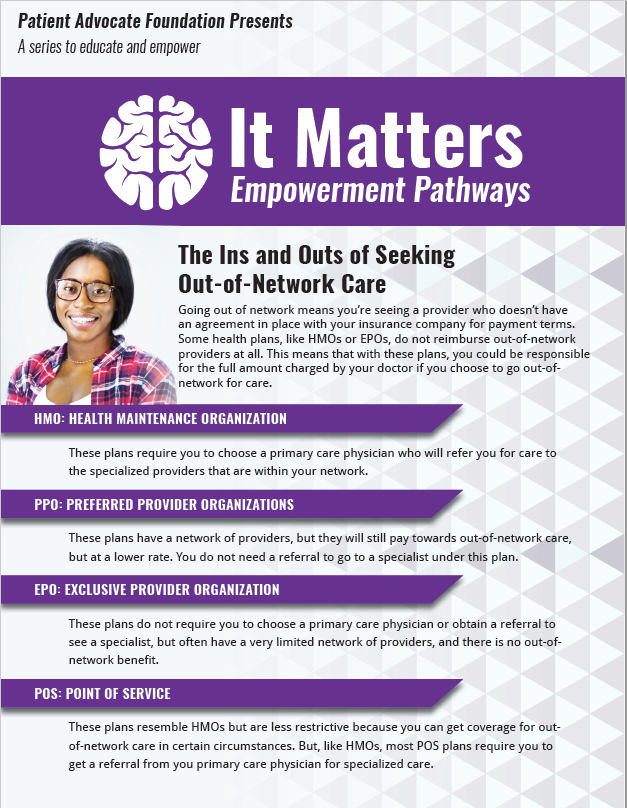Downloads

The Ins and Outs of Seeking Out-Of-Network Care
Going out of network means you’re seeing a provider who doesn’t have an agreement in place with your insurance company for payment terms.
 Menu
≡
╳
Menu
≡
╳
Patient Advocate Foundation (PAF) is a national 501 (c)(3) non-profit organization which provides case management services and financial aid to Americans with chronic, life threatening and debilitating illnesses.
In 2023, PAF served a population
of patients with over 958 distinct diagnoses.
Donate today and help Patient Advocate Foundation continue to help patients get access to the prescribed healthcare that they need.

Going out of network means you’re seeing a provider who doesn’t have an agreement in place with your insurance company for payment terms.